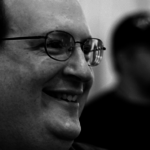Workshops
Detailed, hands-on workshops from some of the best practitioners in our industry.
Leading UX: Influencing culture & growing teams
with Kim Goodwin
You know you’ve said it: We could do so much more if we got involved earlier… They think we’re just here to hit it with the pretty stick… Why doesn’t it get built as we design it? The list goes on. So how do we change our organizations–or perhaps our own behavior–to fix it?
In this full-day workshop, Kim will help you build skills in both change leadership and daily practice leadership. These skills aren’t just for managers; designers at all levels can use them to be more effective. We’ll cover:
- Principles of effective leadership
- Roles for practice leaders (of which management is only one)
- Assessing and coaching others in design and collaboration skills
- The relationship between leadership and culture
- Assessing your organization’s culture
- Adapting your design and leadership approaches to your context
- Determining how much your team should adapt to culture or try to change it
- Helping key individuals through change: conversation tools
- Planning your approach to wider change
Come prepared to share some of your best (and worst) leadership moments, and to try some specific skills via role plays and other exercises. You’ll leave with both a personal leadership development plan and some clear next steps for organizational change.
What you’ll learn
- What organizational culture really is (hint: it’s values, not whether you have beer in the fridge) & why it’s hard to change
- How to assess and adapting to the existing culture, with specific project management & communication approaches
- Why individuals resist change, and how to help them through it
- How organizational change works at scale: principles and specific approaches for UX
- The difference between management and leadership
- How familiar UX concepts (like design principles, context, process, and deliverables) can help you tackle leadership and culture change as a design problem
- Essential leadership principles and how they relate to “style”
- How to develop a hiring plan
- How to assess designer skills (in hiring and coaching, then deliver constructive feedback in a way people can accept
- How to handle other leadership conversations: negotiation & conflict management
- How to identify and address your own less-than-ideal leadership behaviors
Who it’s for
Mid-to-senior individual contributors and managers.
Building Performant Websites
with Tim Kadlec
Performance is a critical consideration for online experiences. We don’t stand still on the web. We click links, we expand menus, we move from page to page — we are constantly having our experiences shaped by how quickly each of these interactions takes place.
What you’ll learn
- How to integrate performance budgeting and testing into your development process to catch issues quickly
- How new technologies impact web performance (HTTP/2, service workers, resource hints, etc.)
- The steps the browser goes through to display a page on your screen
- What the critical rendering path is and how to optimise for it
- How to identify performance bottlenecks in your sites and applications
Who it’s for
This workshop is for any front-end developers or designers who want to start building better performing sites. As long as you’re at least familiar with the basics of HTML and CSS, you’ll feel right at home.
What to bring
- You
- Your laptop
- Your brain
How to be clear: the elements of content design
with Jonathon Colman
Designing content is hard because writing for people is hard. And writing for mobile interactive experiences is even harder: how do you help people in your organization find the right voice, develop effective principles and standards, and agree on what they mean when they say what they say?
This workshop gives you the tools and experiences you need to make content design easier, faster, better, and more manageable over time. You’ll leave with the knowledge and frameworks you need to scale your content design across all of your interactive products, websites, and other experiences as your organization grows.
What you’ll learn
Content doesn’t mean “write the words” any more than design means “make it pretty.” When you design content, you‘re creating an experience with words.
That’s why this workshop covers:
- A complete, end-to-end process for approaching content design for websites and apps
- How to discover your organization’s core values—and use them to guide all of your content
- A model for designing content from high-level principles to standards all the way down to individual terms
- How to conduct—and get the most out of—the critique process so that you can iterate on your work and build strong teams
Who it’s for
This workshop is best for the people who make content happen in your organization: writers, designers, information architects, marketers, and business owners.
What to bring
- You
- Your laptop, mobile device, or notebook
- Your big, juicy brain (caffeine optional)
Deconstructing Delight: The Workshop
with Jared Spool and Dana Chisnell
There’s a vast difference between designing an experience that doesn’t suck and one that drives engagement. We’re good at eliminating your users’ frustration — we’ve been practicing for about 40 years. It’s easy to observe whether your customers are unhappy, and then just not do that. But users’ expectations are higher.
In this workshop, we’ll look at a nifty framework for thinking about and talking about three levels of happy design, based on research from behavioral economics, hedonics, positive psychology, the importance of adult play, and emotion in design. Through fun, delightful interactive activities in this workshop, we’ll take apart the elements of pleasure, flow, and meaning.
What you’ll learn
You’ll learn simple approaches to:
• exploring personality within designs
• creating flow for users through taking things away
• identifying the stories people want to tell about your design
Managing Chaos: Digital Governance by Design
with Lisa Welchman
Many organizations have been operating online for over 20 years and still don’t know who is really “in charge” of their online presence. That lack of clarity often slows the pace of digital development and impacts online quality as different stakeholder groups take differing and often un-complementary views of the organization’s online purpose, structure, and look and feel. This presents a methodology for clarifying decision making around digital channels in order to facilitate agile and meaningful digital development.
What you’ll learn
In this workshop you learn why organizations can’t come into alignment around digital development. We will discuss difference types of of governance models—those with tight controls and those with more open controls (and everything in between). You will also learn what makes up a digital team and how to structure your team so that development runs smoothly.
Who it’s for
This workshop is for folks who:
- Want to understand what digital governance is
- Are encountering unconstructive argument and debate about digital “ownership” in their organization.
- Need a vocabulary and methodology to educate or influence internal resources regarding sound digital operational practices
Demystifying Front-End Security
with Tim Kadlec
Every day, billions of people around the world use the web to work, to find information, and to be entertained. When they come to your site, they trust you to provide them with a good experience. They expect a site that loads quickly, that works in their browser, and that is well designed. And though they may not vocalize it, they certainly expect that experience will be safe: that any information they provide will not be stolen or used in ways they did not expect.
That trust is an important thing, and it’s up to us to make sure it’s justified. But security is an intimidating topic. There are so many different types of attacks, so many different ways that information can be exposed. It can be difficult to wrap our heads around.
What you’ll learn
In this workshop, we’re going to make front-end security more approachable. Specifically, we’ll:
- Learn how to conduct, and how to defend against, common attacks.
- See how Content-Security Policies can help protect your users.
- Learn how HTTPS works and how to set it up.
- Explore different tools that can help you start building more secure sites and applications right now, and ensure they stay that way.
Who it’s for
This workshop is for anyone doing front-end development. You don’t need to know a single thing about security: we’ll build from the ground up.
What to bring
Your laptop.
Inside the US Digital Service: delivering better government services through technology and design
with Janine Gianfredi
Millions of Americans interact with government services every day. Veterans apply for benefits. Students compare financial aid options. Small business owners seek loans. Too often, outdated tools and complex systems make these interactions cumbersome and frustrating.
Enter the United States Digital Service, the “start-up” inside the White House, partnering leading technologists with dedicated public servants to improve the usability and reliability of our government’s most important digital services.
Join Janine Gianfriedi, as she shares lessons learned and wisdom gained as former Chief Marketing Officer of the US Digital Service, and facilitates an interactive discussion on building services for citizens that work better and cost less.
What you’ll learn
The workshop will be full of practical, pragmatic advice, and will equip you with tools, tactics and techniques to help your organisation to get the hang of all this digital stuff, putting the needs of users ahead of that of the organisation.
Who it’s for
This workshop is for anyone striving to design and deliver great, user-centric digital services inside an organisation which doesn’t seem to know how.
What to bring
Whatever you require for thinking, listening and engaging in stimulating inclusive discourse.
Lean UX: Or how to put a brain on your Agile process
with Jeff Gothelf
Common Agile practice, as it’s commonly taught, isn’t enough to create successful products. In the worst of cases Agile (Scrum, etc) can lead smart, well-intentioned people into doing stupid things all in the name of building more faster. While building software isn’t easy, the hardest part is making good decisions about exactly what to build and how to design those products.This workshop puts a brain on your Agile process. In it you’ll learn how to build up from an Agile and Scrum foundation by knitting Lean Startup, Lean UX, Design Thinking, and effective Product Thinking into more holistic product design and development process. The result is an approach to product development that let’s you and your team focus on creating products your users love.
This workshop is fast-paced and collaborative. Jeff teaches with a mixture of hand-drawing, slides, videos, storytelling and humor. You’ll get your hands dirty getting a taste of the many practices covered.
What you’ll learn
In this class you’ll learn:
Who it’s for
This workshop isn’t just for UX Designers. One of the biggest misconceptions in Scrum is that the product owner is the “single ringable neck” solely responsible for building the right product. In fact, it takes a whole team focusing on product success. This workshop is ideal for:
You should bring your team. Otherwise you’re just going to have to try to explain all this stuff to them when you get back to the office.







